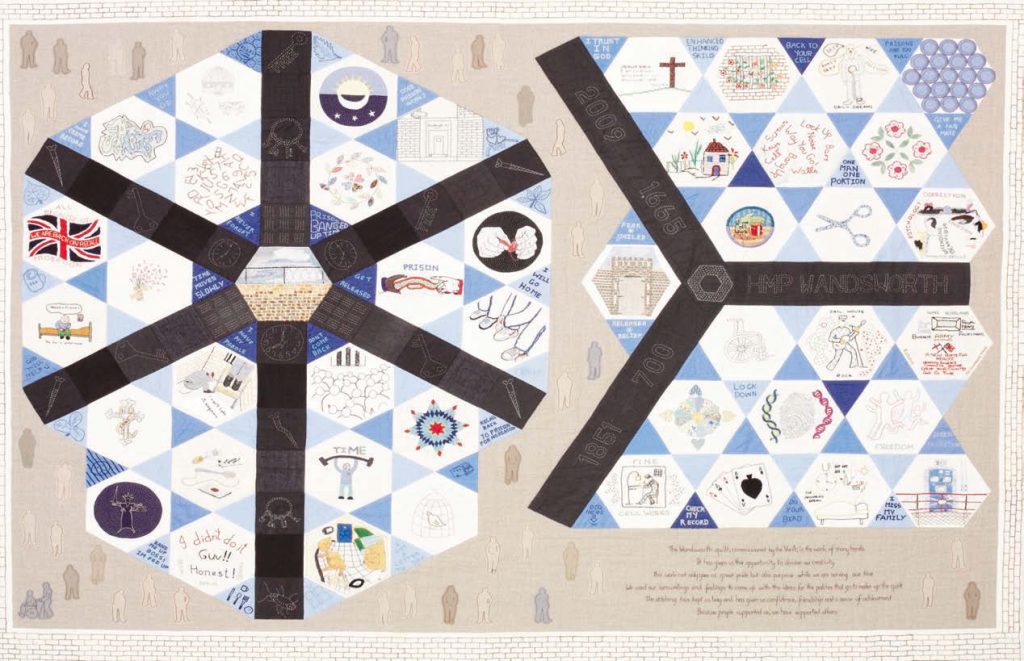Build the Big Society behind bars, says charity
Opportunities for prisoners to take responsibility and volunteer to help others improves wellbeing and promotes desistance from crime, according to a new report by the Prison Reform Trust.

As the Justice Secretary Ken Clarke has stated, currently many people in prison are not encouraged to take responsibility and are compelled to live a life of “enforced, bored idleness”. The Prison Reform Trust report demonstrates that encouraging active citizenship in prisons should play an important part in achieving the government’s aims for a “rehabilitation revolution” and developing the wider concept of the Big Society. It could help achieve the coalition’s plans, outlined in the Ministry of Justice’s green paper Breaking the Cycle, for making prisons places of hard work and purposeful activity.
The report, Time Well Spent, by Kimmett Edgar, Jessica Jacobson and Kathy Biggar describes five types of active citizenship: peer support, charity work, restorative justice, prisoner representative duties, and arts and media.
The study was based on survey responses from 82 prisons across England and Wales, and interviews with staff and prisoners in 12. The survey found that the large majority of prisons provide at least some opportunities for active citizenship. For example, 95% of prisons surveyed stated that they have race representatives, and 89% that they have Samaritan Listeners.
However, overall, volunteering opportunities are open to very few people in prison.
For instance, the survey found that four roles involved fewer than five prisoners in the
majority of prisons responding: housing advisers, employment advisers, violence reduction representatives, and suicide prevention representatives. This means that most of their skills and strengths are wasted; they are a huge untapped resource.
Volunteering enables prisoners to gain a greater sense of purpose to their time in prison, an increased capacity for responsibility, new skills, earning the trust of others and opportunities to give something back. By developing empathy, building up confidence and a sense of responsibility and focussing their thoughts on the future, active citizenship can provide the skills to help people lead a law abiding life on release.
The report’s launch coincides with the BBC’s announcement that it is to broadcast its political panel programme Question Time from inside a prison for the first time on Thursday. Ten prisoners from Wormwood Scrubs and 10 staff will join 100 members of the public in the audience for the panel discussion.
One prisoner interviewed for the report said:
“I’ve always been take, take, take, but I’ve never given anything back … It will make me feel a hundred times better than I do now … if I can give something back instead of take.”
Another said:
“Most of my life I’ve been doing bad things – like selling drugs and doing things like that; getting praise for the wrong things. This is doing something that helps the community, not hinders it. That doesn’t compensate, but I can make myself more valuable to society in the future.”
Writing in the Foreword for the report, Erwin James, a former prisoner, author, and columnist for the Guardian, said:
“Every week in prisons all over the country groups of people with learning disabilities are welcomed into prison gyms and education departments to work with prisoners to their mutual betterment. For those in prison who want to help fellow prisoners there are The Listeners, prisoners trained by Samaritans to provide a sympathetic ear to neighbours in distress.
“There is the Toe by Toe programme where more able prisoners teach less able colleagues to read and write and in all prisons there are schemes and programmes where prisoners and staff are working together to provide some service, social enterprise, or item that benefits people in the outside community. But in spite of all the efforts of all those people, there is still not enough recognition that more people in prison than might be imagined want to engage positively with their communities, inside and out.”
Lord Woolf, chair of the Prison Reform Trust, said in a film published on the Prison Reform Trust website to coincide with the launch of the report, said:
“Every now and then, very good things happen in prisons. There are prisons where there are very good schemes, where they will make prisoners take responsibility. Sometimes it’s done by arranging opportunities for prisoners and their victims to meet. Sometimes it’s by … training people to help those who are in danger of taking their own life. The best way of avoiding those heart rending suicides particularly with young people while they are in prison is to motivate other prisoners to take responsibility.”
David Ahern, CEO of the Shannon Trust which runs the Toe by Toe learning programme delivered by prisoner mentors throughout prisons in the UK, said:
“We know that going through the prison system there are around fifty thousand people each year with a reading age of that expected of an 11 year old or below. Now we are engaging with a few thousand. There is this huge swathe of people in prison who we could be helping that we are not helping.”
Kathy Bigger, former vice chair of the Samaritans who founded the Samaritan Listeners scheme in prisons, said:
“There are Listeners out in the community now, and remember they’ve been coming out into the community for twenty years, who have never gone back to offending, because it made a real difference to the way they saw themselves and what they could contribute to society, they saved lives.”
Juliet Lyon, Director of the Prison Reform Trust, said:
“No one goes to prison for good behaviour. But this report shows that prisoners are capable of doing good for others, contributing to society, making amends, and taking responsibility. Isn’t that what we want from our prisons?
“Far too often time served is just time wasted. Enabling prisoners to take responsibility and help others should be the cornerstone for Ken Clarke’s rehabilitation revolution.”